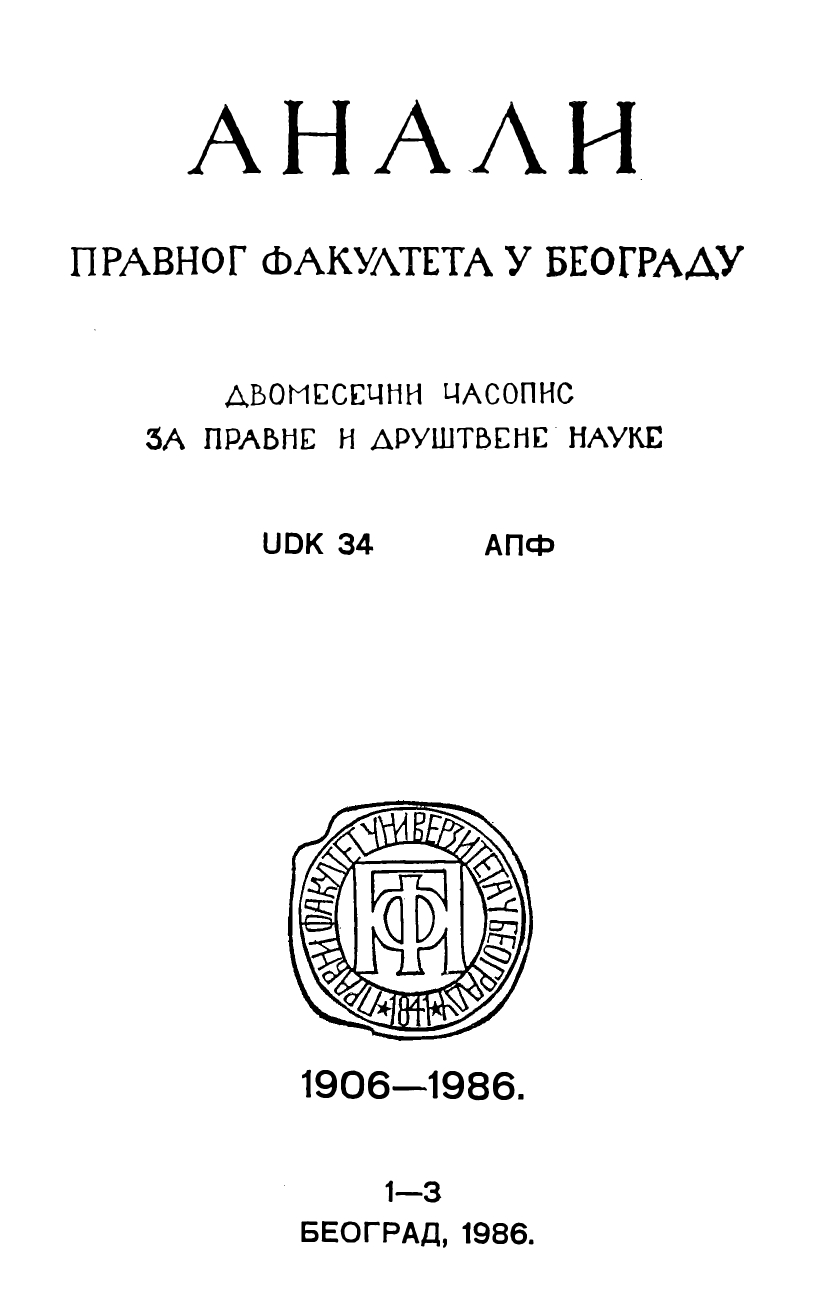НЕКОЛИКО НАПОМЕНА ПОВОДОМ СТО ПЕДЕСЕТОГОДИШЊИЦЕ ХРВАТСКОГ НАРОДНОГ ПРЕПОРОДА
SOME REMARKS ON THE 150th ANNIVERSARУ OF THE CROATIAN NATIONAL REVIVAL
Author(s): Ružica GuzinaSubject(s): Politics / Political Sciences, History
Published by: Правни факултет Универзитета у Београду
Summary/Abstract: In course of the thirties of the nineteenth century economically strengthened and nationally awaked, the Hungarian bourgeoisie strived to impose its nationality and the absolutism over Croats too, who were under direct rule of Hungary (while the supreme authority was that of Austria). The first objective had to be realized by means of imposing to Croats the Hungarian language, while the other one by way of abolishing the autonomy of Croatia. However, these attempts confront with resistance by the young Croatian bourgeoisie whose national consciousness too has been already aroused under the influence of intensive economic and social developments. Most active in that resistance are the young Croatian writers who are the first to give to the Revival a literary character. Ljudevit Gaj — the leader of the Movement, initiates the Hrvatske novine (Croatian Journal) in 1835, as well as its literary supplement under the title Danica. At the same time, a whole series of national institutions has been established, such as Hrvatska čitaonica, Matica hrvatska, Gospodarsko društvo, etc. (Croatian Reading-room, Croatian Queen-bee, i.e. academic society, Agricultural Society). The Croatian national revival is also known as the »Illyrian Movement«. It was usual at the times to call the South Slavs Illyrians, since they settled on the former territory of old Illyrians. The idea was that the defense against hungarization would be more successful if »Great Illyria« was used as an argument, since this was the term applied in the Movement to cover a projected community of South Slavs — and not the territorially reduced and at that time divided Croatia. That is why Gaj was saying that »our nationality would perish, if it was not the Illyrian«. Hungarian authorities have suppressed the Illyrian Movement. In 1839 the Hungarian Parliament enacted a decision according to which Hungarian language had to be introduced within a ten year period in Croatia (both in the so-called Civilian one and in Slavonia), as the official one. This was followed by the February 11, 1843 Royal Decree by means of which the use of the Illyrian name was prohibited. The political program of the Illyrian Movement contained the idea of uniting of South Slavs under the Austrian rule, but on a federal basis. However, the Movement was not welcomed in other South Slav countries, although close cooperation has been established in the area of literature, and more particularly between Croatian and Serbian writers. Gradually, the Illyrian name was abandoned to be replaced by the new one, namely Yugoslav. The shtokavian dialect has been accepted too as the most wide- -spread one with the South Slavs. The common language and the common literature of the South Slavs, namely, had to precede their political uniting.
Journal: Анали Правног факултета у Београду
- Issue Year: 34/1986
- Issue No: 1-3
- Page Range: 49-56
- Page Count: 8
- Language: Serbian

